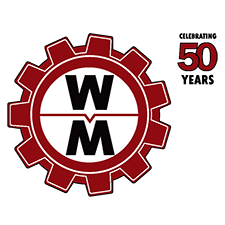The folder is n’t the newest tool on the metal forming block, but it’s a machine whose popularity has been rising among shop owners over the past decade.
n’t the newest tool on the metal forming block, but it’s a machine whose popularity has been rising among shop owners over the past decade.
For shops that routinely work with larger, more sensitive materials and do shorter runs, investing in a folder can be a smart business decision—helping you increase productivity while devoting your other equipment (like press brakes and benders) to the jobs they do best.
Keep reading to find out if a folder will be the right fit for your shop:
How Do Folders Work?
Folding machines might vary technologically (flexibility of handling, sophistication of automation, etc.), though they all bend metal in essentially the same way:
- First, the operator lays the metal on a sheet support and backgauging system.
- Next, the material needs to be clamped between upper and lower beams.
- The folding beam finally sweeps upward, creating the intended angle.
To think of it another way, imagine folding a metal paper airplane. You start by clamping the largest part (or the largest flange) before bending the shorter flange (or flanges) to the angle you want.
[Embed this video: https://www.facebook.com/RASSystemsLLC/videos/579546138744943/]
When Is the Right Time to Fold?
1. Larger Materials
While other machines like press brakes require operators to stabilize and support the workpiece outside of the machine, folders are engineered to provide that support for you. This can be particularly valuable when working with larger, heavier sheets of metal (anything approaching or exceeding five feet or 1.5 metres in width).
Many of today’s folders also allow operators to pre-program and automate multiple bends per part (some up to 30). Operators don’t need to intervene or lift materials at any point, since the part remains flat on the sheet support and is positioned accurately by the backgauge.
2. Complex, Sensitive Workpieces
Folders are engineered to treat surfaces carefully, minimizing potential problems and damages like:
- Scraping or scratching, as the movement between the machine (including the tooling) and the material’s surface is virtually eliminated.
- Slipping, since workpieces are held securely in place by both upper and lower beams.
These attributes make folders ideally suited to handle sensitive materials like stainless steel or metals that are pre-painted, coated, lacquered, or perforated.
3. Short Runs
Folders often use one set of universal tools for a full range of applications including differing angles, flange dimensions, metal types, and metal thicknesses. This means fewer tool changes for operators and shorter setup times, which is why folders can be especially useful for just-in-time jobs and more rapid runs. The limited tooling also reduces the amount of inventory your shop needs to keep on hand.
Many of today’s folders offer additional time-saving tools like automated or quick-action clamping and CNC screens to enable fast, graphical setups and changeovers.
4. Ease of Use
Folders make handling materials easy for any operator, whether they’re experienced with using all the equipment in your shop or are still learning, perhaps transitioning to a folder after using a more manual tool like a handbrake.
Folders are also safer for operators to use:
- Operators don’t need to support the weight of the sheet metal themselves.
- They aren’t in contact with the part being bended or clamped.
- Materials won’t be “whipped up” while they’re being folded.
- Light curtains aren’t required, though they can be added.
Choosing the right folder can help you maximize your shop’s safety and increase productivity.
Finding the Folder Suited for Your Needs
Folding machines are preferred for use with applications like:
- Building and construction supplies (like roofing).
- Cooling and heating equipment (HVAC).
- Metal furniture (like doors, shelving, or lighting).
Keep in mind that a folder can complement other machines you might already have on your fabrication floor. Press brakes, for example, are able to handle larger panel projects, but a folder will be better at getting those types of jobs done more accurately and swiftly—reducing unnecessary wear-and-tear on your equipment.
Ultimately, you need to find the metal folding machine that’s right for you, your shop, and the applications for which you’ll use it.
Westway Machinery offers an extensive lineup of metal folding machines from RAS, Sampson, and TENNSMITH. Contact us today to learn more about our product offering and discuss your needs!
Like this post? You’ll also enjoy:

